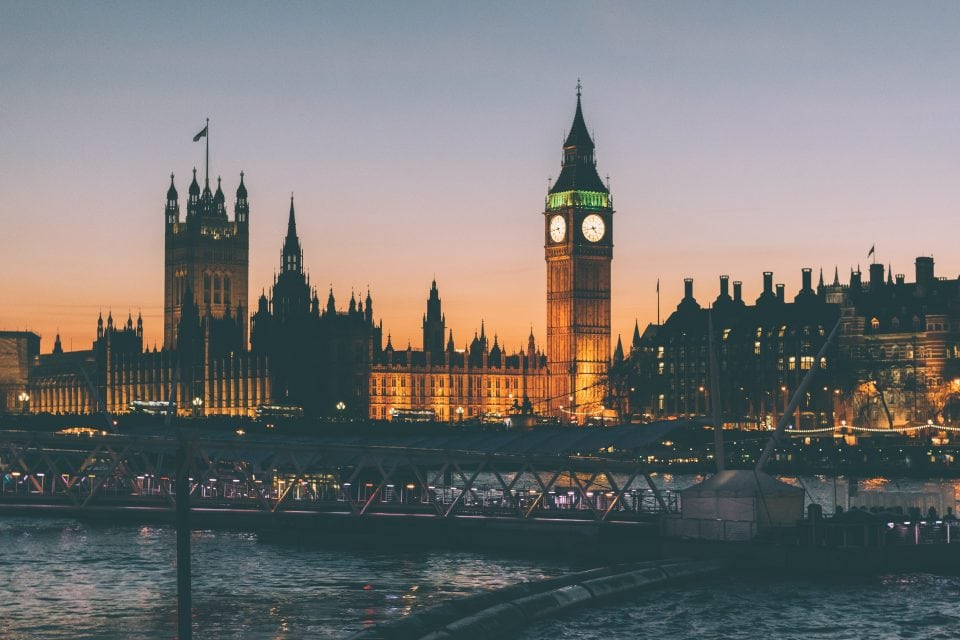ISSN: 2736-6065
Blog Post by Irina von Wiese, former LibDem MEP
London Calling is the European Liberal Forum’s column aimed at bridging the Channel.
As pro-EU Britain recovers from the (mostly) discouraging local and parliamentary by-election results, which saw the Conservative party making inroads into Labour heartlands, another shift towards the hard right becomes increasingly clear: ministers in charge of the home office, headed by ultra-Brexiteer Home Secretary Priti Patel, are busy implementing their ‘hostile environment’ towards immigrants. Formerly reserved for victims of the Windrush scandal and refugees from war zones, this regime is now being extended to citizens of European Economic Area (EEA). Arguably, this is in line with non-discrimination guidelines: Europeans, after all, no longer have privileged status and will therefore be treated with the same hostility as everyone else trying to enter the United Kingdom. The aim, it seems, is to deter EEA citizens from even considering a visit to the UK for purposes other than spending money on hotels, museums and restaurants. Least of all, from considering a more permanent move.
Europeans who travelled to the UK for job interviews, for example, have recently found themselves locked up in airport detention rooms and sent to immigration removal centres, before being expulsed. One Italian woman was reported to have been handcuffed and left in a van overnight without access to her medicine or mobile phone, before being taken to a detention centre, where she spent seven days before being sent back to Italy.
This is not just a shockingly abrupt change from Free Movement to Zero Freedom, it is also another example of the UK government’s continuous disregard for the rule of law – EEA rules clearly allow foreign nationals to attend job interviews in the UK.
It is true that since 1 January, new immigration rules apply to all non-British citizens (except for Irish citizens) arriving in the UK to live, work or study. The free movement exemption for citizens of the EEA and Switzerland no longer applies, and everyone arriving will need to check visa requirements and, if necessary, apply for an appropriate visa before travelling to the UK. For short trips, business or tourism, a passport is usually sufficient – but questions may be asked at the border about the intention of the trip. Most visitors can only carry out certain permitted business activities, such as business meetings, scoping out projects to be performed overseas, and attending conferences. Unless it is a permitted paid engagement under the rules, visitors cannot ‘work’ – which includes work placements, internships or filling a temporary shortage – even for short periods. Border officials can check whether they are trying to do this by looking at length of intended stay, frequency of trips to the UK or the visitor’s personal circumstances.
Attending a job interview, however, is not the same as working. At the border, the interview candidates stated that they intended to head back home to apply for a work visa in the event they were offered the job. Nor was there any indication that the visit broke Covid-19 restrictions on either side of the border.
Beyond the question of legitimacy, the conduct of border officials raises doubt about the New Normal of UK-EU relations. Even if the Home Office ends the most blatant breaches of its own rules, the expulsion of EEA visitors is sending a clear message: We no longer want your workers here. The new immigration rules set minimum income thresholds most academics and key workers fail to meet. At the same time, a post-Covid economic recovery desperately depends on hospitality, performing arts and seasonal agricultural workers, many of whom have either found new jobs or returned to their home countries during the pandemic. A deterrence regime at Britain’s borders also sends the wrong signals to would-be investors, researchers and innovators. Without Horizon and Erasmus, and with the threat of being detained on arrival, who would choose to start out in the UK when they could go to the U.S. or Canada with similar visa requirements and the promise of higher returns? Without free movement, why would a Greek junior doctor, who will get paid three times as much in New York, come to London? These choices, made today, will affect the way our societies and economies work tomorrow. A ‘hostile environment’ at today’s borders will deter future immigrants, however desperately we may need them.
The Conservative party has wooed voters in England’s most deprived areas by adopting the populist slogans of Nigel Farage’s Brexit party. It is now selling a Trumpish narrative of ‘Britain First’ to its new supporters, blaming the EU for export fiascos (what’s new?) and fanning the flame of xenophobia by taking an increasingly hardline anti-immigrant stance. At the same time, the government is trying to attract foreign investment and trade deals with governments whose citizens were promised easier access. The truth is that money is welcome, but people not – lest they bring the money with them.
Published by the European Liberal Forum. The opinions expressed in this publication are those of the author(s) and do not necessarily represent those of the European Liberal Forum.
